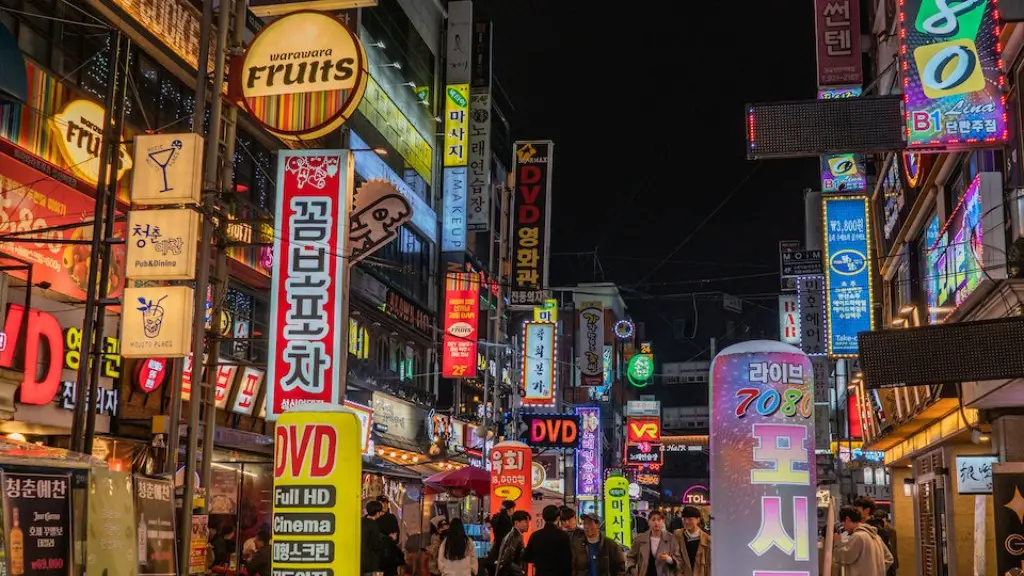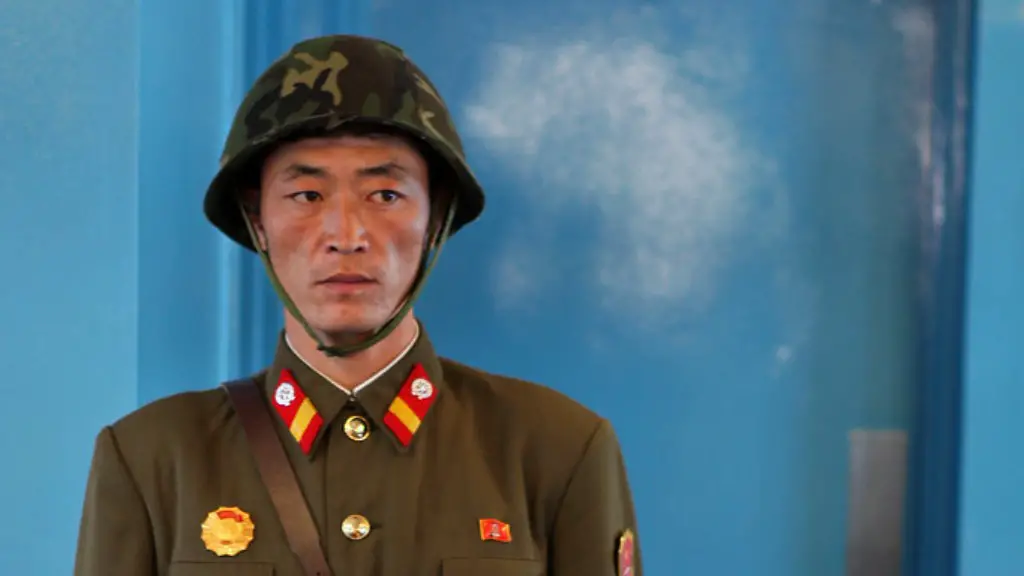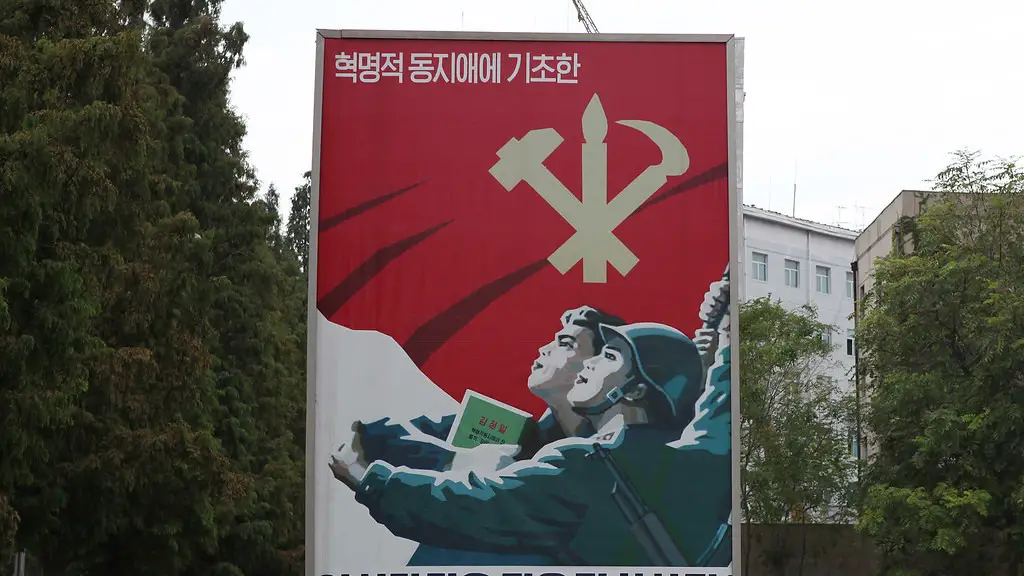Origins of the North Korean Regime
North Korea’s oppressive religious climate dates back to the regime’s founding in 1945. Led by the dynastic Kim family, the country has empowered the “Juche” or “self-reliance” ideology as its state philosophy and has gone through great measures over the years to subdue any competing religious practices and forms of expression. North Koreans are strongly discouraged from participating in any form of outside religious worship. In addition, any type of religious activity or public displays of faith is strictly restricted, resulting in an extremely oppressive religious climate.
The Role of State-Approved Religion
Despite such tyranny, there are two officially-sanctioned religions in North Korea: Chondoism and Korean Buddhism, both of which were founded in the nineteenth century and have ties to Korean independence and regional identity struggles. These state-approved religions mostly serve as a platform for public expression, rather than an avenue for worship. As such, there is no access for North Koreans to receive meaningful religious instruction or direction in their lives.
Suppression of Unsanctioned Religions
North Korea also strictly suppresses religion activities that are not formally recognized or sanctioned by the government. A variety of activities or statements related to foreign faiths can be deemed subversive by the regime and can lead to detention or even death when discovered.
Individuals deemed to have ties to faiths from outside of North Korea–particularly Christianity–are subject to harsh punishments. The US State Department has documented numerous reports of individuals facing harsh detention, interrogation, closure of places of worship, torture, and even execution as a result of their religious beliefs.
Christianity and North Korea
The North Korean regime has a particularly hostile attitude towards Christianity, as it is considered to be a “foreign” religion. As a result, North Koreans are strongly discouraged from participating in any outside Christian activities and the public display of Christian symbols is strictly prohibited.
The suppression of Christianity is also felt in the North Korean prisons, where many Christians are subject to cruel treatment and abuse. In fact, some estimates suggest that as many as tens of thousands of Christians are currently detained in North Korean political prison camps. Others have been executed for their beliefs or are suffering from harsh living conditions and lack of adequate medical or food care.
Outside Pressure and Optimism for Change
In recent years, the international community and various advocacy organizations have increased their efforts to curb North Korea’s egregious abuses and human rights violations. All religious freedom-related United Nations resolutions have been supported by the majority of the international community and have called for the release of the estimated tens of thousands of individuals currently held in North Korean prisons for their faith.
Though there is still much to be done, these efforts have raised some cautious optimism among advocates of religious freedom in North Korea. Many believe that North Korea’s oppressive religious climate is an issue that must be addressed in order to bring about meaningful, systemic changes in the country.
Religious Discrimination and Climate of Fear
North Korea’s oppressive religious climate has created an environment of fear and discrimination in the country, particularly for members of minority faiths. Those who are discovered to be engaging in religious activities outside of the two officially recognized religions risk detention, interrogation, closure of places of worship, torture, and even death.
Despite the danger, some North Koreans continue to take the risk to practice their faith and share their beliefs with others. This is made increasingly difficult given the lack of access to religious resources; individuals rely on underground networks of church members operating from China in order to access the most basic religious scriptures or teachings.
Targeted Persecution of Minorities
The North Korean regime’s hostility towards religion and its harsh restrictions are felt most acutely by religious minorities, particularly Christians. The country’s prisons have become a site of tremendous persecution for Christians, with individuals facing torture, brutal interrogations, and death. In addition, North Korean Christians are routinely subjected to harsh living conditions, lack of adequate medical or food care.
This targeted persecution has been well-documented by the international community, with reports emerging regularly of North Korean Christians facing imprisonment, interrogation and torture, and even execution for their beliefs.
Restrictions on Religious Activities
Not only do North Koreans face persecution for engaging in religious activities outside of the two officially-sanctioned religions, they are also heavily restricted in how they are able to practice the two state-sponsored faiths.
Religious gatherings are strictly limited and monitored by authorities. In addition, individuals must register their activities and beliefs with the government, and many religious texts and materials are confiscated and banned.
Censorship and Propaganda
The North Korean regime’s hostility towards religion has also extended to the dissemination of religious information and materials. Censorship and propaganda are commonplace, with books and materials related to faith being banned and censored by the government. In addition, the regime has attempted to control the spread of religion through the use of official propaganda.
While the government has attempted to limit the spread of religion in various ways, some progress has been made in recent years with the rise of independent media outlets, the arrival of foreign pastors, and the spread of smuggling networks. However, the future of religious freedom in North Korea remains uncertain.


